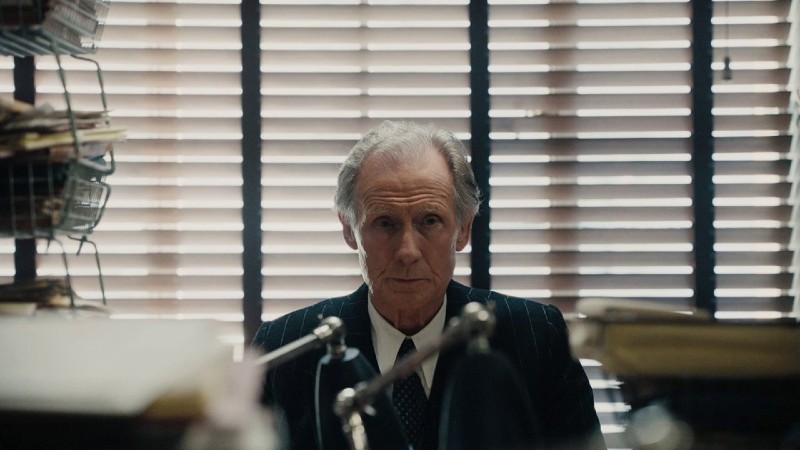




Literature Nobel Prize laureate Kazuo Ishiguro adapted Akira Kurosawa’s 1952 drama Ikiru into a new screenplay, thus giving birth to Living. The Japanese-born British writer wanted to cast Bill Nighy and have the story set in England from the outset. He first watched Ikiru when he was aged about 12.
Mr. Williams (Bill Nighy) lives each and every day of his life in more or less the same way. He takes the same suburban train to London every morning. He works a menial nine-to-five job at the Public Works Department. He goes to the movies on Tuesdays. One day, Mr. Williams learns that he has terminal cancer. He tries to enjoy the final part of his life by travelling and partying, only to find out that does not bring any joy and fulfilment.
He remembers the three mothers who repeatedly came to Department in the the past few months. They repeatedly requested planning permission for a children’s playground. Requests such as this are routinely discarded without a reason. Slow motion camerawork emphasises the lack of efficiency within the organisation: documents sluggishly pass from hand to hand with no end to sight. Much to the surprise of his loafing colleagues, Mr. Williams decides to take matters into his own hands. He wishes to leave his mark on this planet by humanising government red tape.

The movie is set sometime in the 1950s. The image quality and opening credits borrow the style of mid-century movies, a reference to the original movie from 1952. The cinematography has a grain to it, and the movie is shot in a square frame ratio. The names of the main actors are displayed in big white letters over images of post-war London. Another noticeable director’s choice is that every scene includes a visible source of light (a big window, lamps, etc.). This sheds hope on an otherwise gloomy story reeking of death.
People remember Mr Williams’s legacy through flashbacks and casual conversations, narrative devices used towards the end of the film. His biggest lifetime achievement was the work of just a few months. A sterling Bill Nighy embodies British composure and quiet stoicism. Long scenes of agony and sickness are gracefully avoided, with the movie instead striking the perfect balance between joy and suffering. A wonderful taste of bittersweet cinema.
Living is out in cinemas on Friday, November 4th. It’s also available for pre-order on Amazon Prime.











